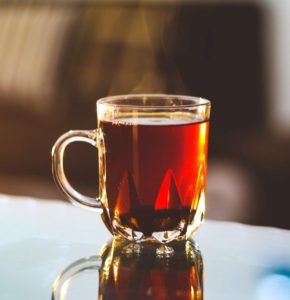Whether a chef, hotelier or publican, limescale is something we all want to avoid. Limescale has the power to increase maintenance repairs and energy bills, as well as decrease the life span of equipment. Understanding how limescale effects catering equipment and how it can be protected, is essential in the running of any commercial kitchen in a hard water area.
What is limescale?
Limescale is that pesky, off-white coloured substance that can build up around your appliances that require water in their function, such as taps, boilers, dishwashers and steam ovens. Limescale is caused by hard water left behind on the surface which then forms a solid layer of limescale that can be very hard to remove without the correct cleaning products.
The build up of limescale can create a tricky time for any business. Limescale builds up very slowly, and in places that we cannot see. It will continue growing until it has created a large, hard white mass that can cause all sorts of problems. If equipment is not protected from limescale, or the limescale is not dealt with correctly, it will grow until the appliance becomes unusable. This means that water will not be able to pass through the limescale which is attacking the equipment and causing corrosion.
Did you know? Hard water is actually responsible for up to 70% of equipment failure. An inconvenience that can lead to loss of revenue or capital expenditure for business.
How does it effect catering equipment?
Taste
As a caterer, the most important part the business is the food and refreshments served. After spending long, hard hours creating the perfect menu for a business, it would be frustrating if something as small as limescale effected the taste.
Affecting the taste of water, limescale can play a part in the flavour and quality of cooking. But does limescale change the taste of water?
Limescale in the pipe mixes with the chlorine, added to the water as treatment, making it safe to drink. The chemicals put into the water as treatment are combined because they work well together. Hard water is that of a foreign compound and can result in creating a funny metallic taste when the chemicals react. This strange taste transfers on to produce and ingredients and into cooking and beverages, altering the taste.
Us Brits love nothing more than a hot cup of tea, a simple luxury that can be affected and compromised by limescale. If it isn’t challenging enough to make the perfect cup of tea (without judgement), limescale needs to be taken into consideration. Hard water when added to beverages can interrupt the compounds again creating a strange, metallic flavour.
This same thing can happen to our morning cups of coffee. Like a kettle getting riddled with hard water and limescale, a coffee machine can have the exact same issue, which can cause the machine to break completely. When hard water is heated it produces limescale at a much faster rate, system issues are created as well as limescale buildup, both of which could be avoided by learning how to clean products correctly on a frequent basis.
How much would it cost your business if a coffee machine broke down?
Maintenance
The impact on the maintenance of a commercial kitchen is another example of how limescale effects catering equipment.
Working in the catering business, long days are inevitable. Adding in the time-consuming task of cleaning down all appliances or utensils every shift to manage limescale can add frustrations and put a strain on staff resources.
This would have to be factored in if a business is in a hard water area, as the build up of limescale is inevitable unless preventative action is taken, for example, installing calcium treatment units which would achieve food grade water.
It takes time, consistency and patience to maintain the never ending cycle of removing limescale. And yes, it has to be cleaned off in one go, otherwise, the dampness left after half-cleaning will only encourage more growth. So what is the best way to clean off limescale?
Deciding the best method of cleaning off limescale can be quite a conundrum depending on the type of appliance or surface that has been affected. The array of chemicals, tools and natural solutions that are on offer will not only drain your staff of time, but will also fill any store cupboard. From professional limescale remover products to vinegar, lemon juice and abrasive removal tools, knowing which is best to protect appliances, as well as the look, could take some trial and error.
Energy efficiency
Did you know that a build up of limescale on catering equipment will not only effect the taste of food or the lifespan of equipment, but it will also reduce energy efficiency? The thick layer of limescale that builds from hard water, means that the equipment has to work harder in order to function. Whether it’s a tap or a boiler, it will effect energy efficiency.
Costs
Having limescale and hard water in a functional kitchen can be a pain and, in turn, cost business. All of the problems discussed above will result in more outgoings. For example, paying someone to clean and maintain equipment regularly, the cost of replacing equipment due to the shorter lifespan and increased energy bills.
How to protect catering equipment:
- Treat appliances on a regular basis with white vinegar or limescale remover (even if you cannot see the issue)
- Water softening and conditioning treatments (to help reduce limescale build up)
- Water filters (to improve the taste of the water when it comes out of the tap)
- Check all equipment regularly (even in the pipework)
- Wipe down all surfaces and equipment (until completely dry to avoid dampness)
As a whole, hard water is something we’d all like to avoid, especially within a busy catering equipment. Limescale can be a tiring and difficult challenge to deal with, however with a solution from WaterCare these problems can be eliminated.


